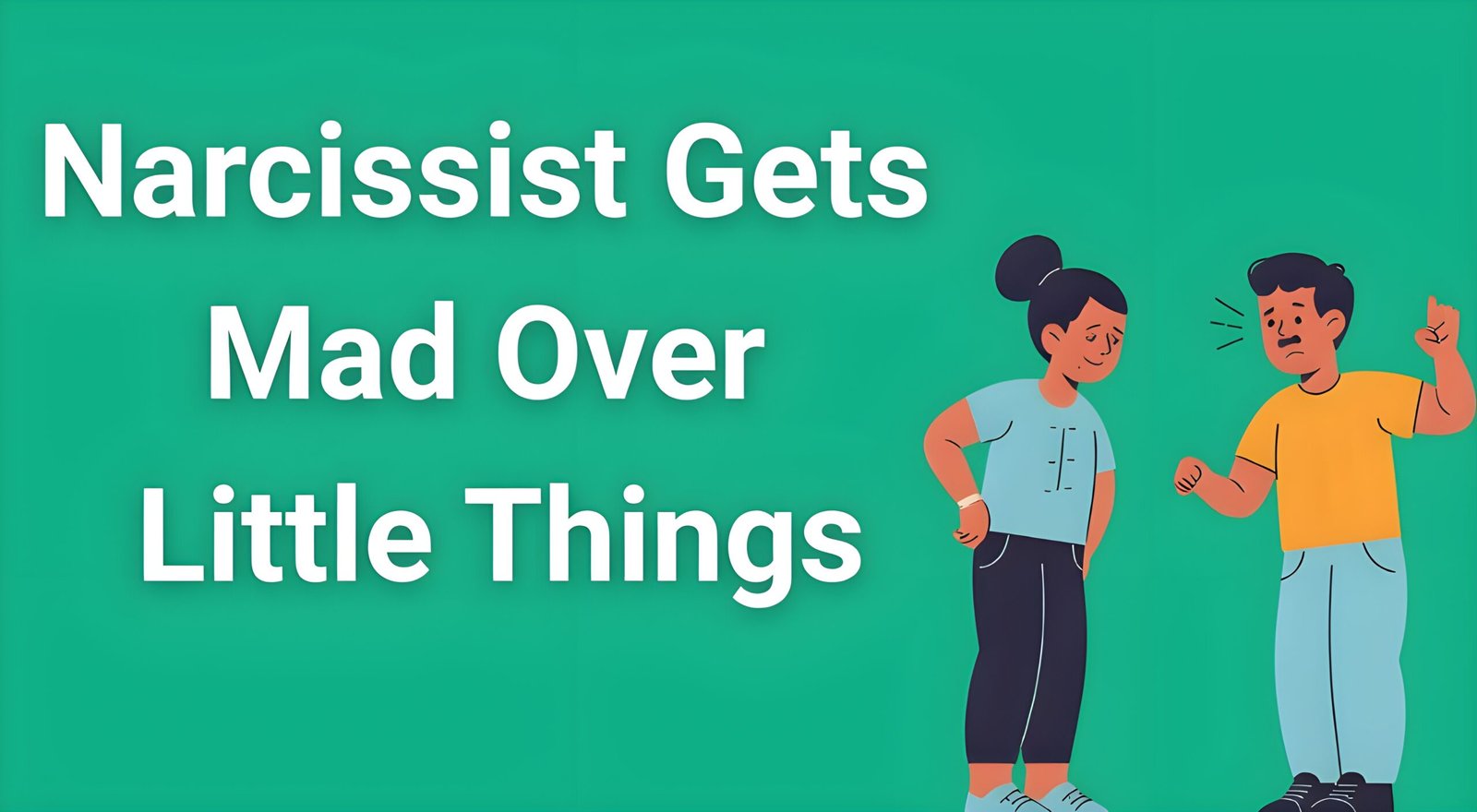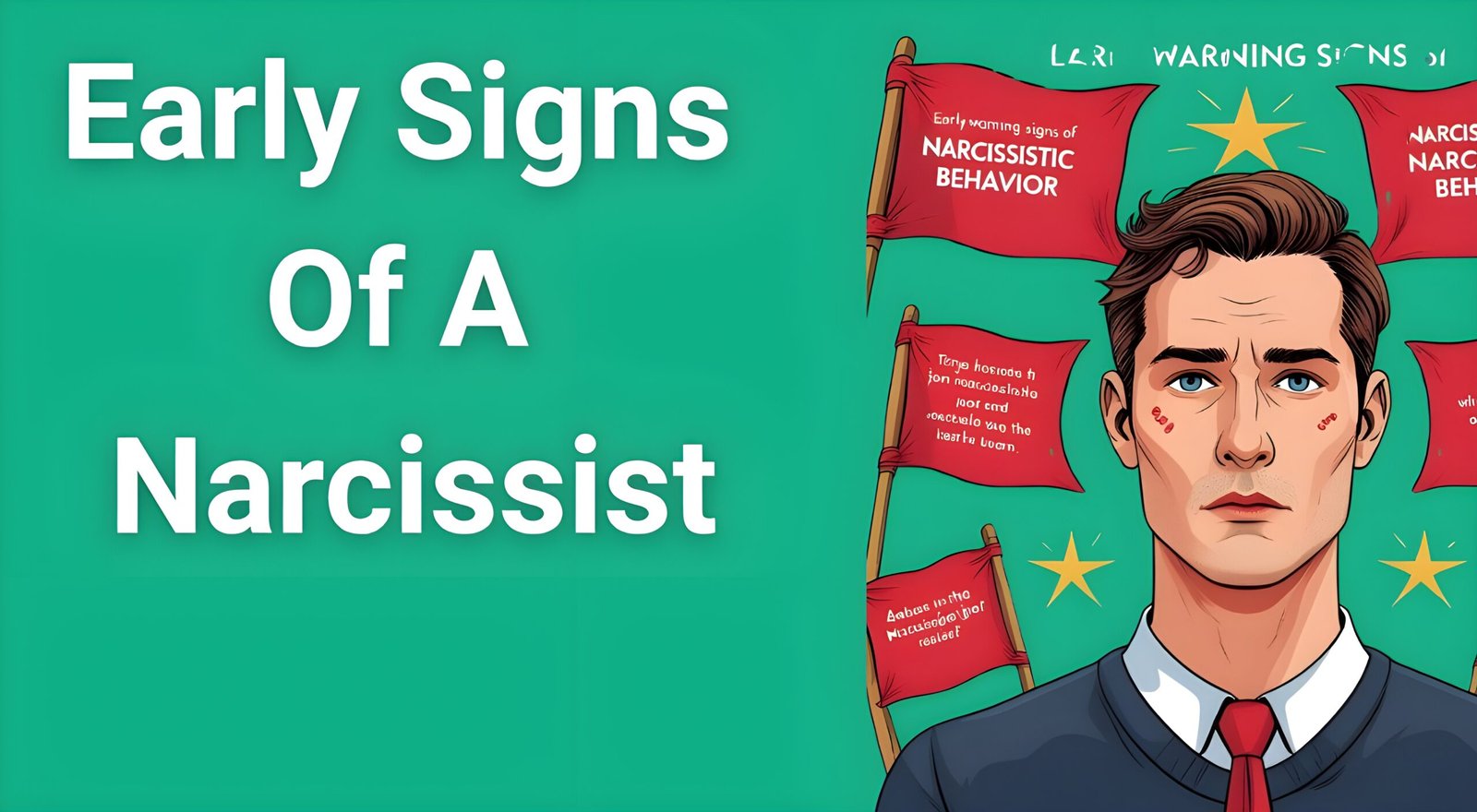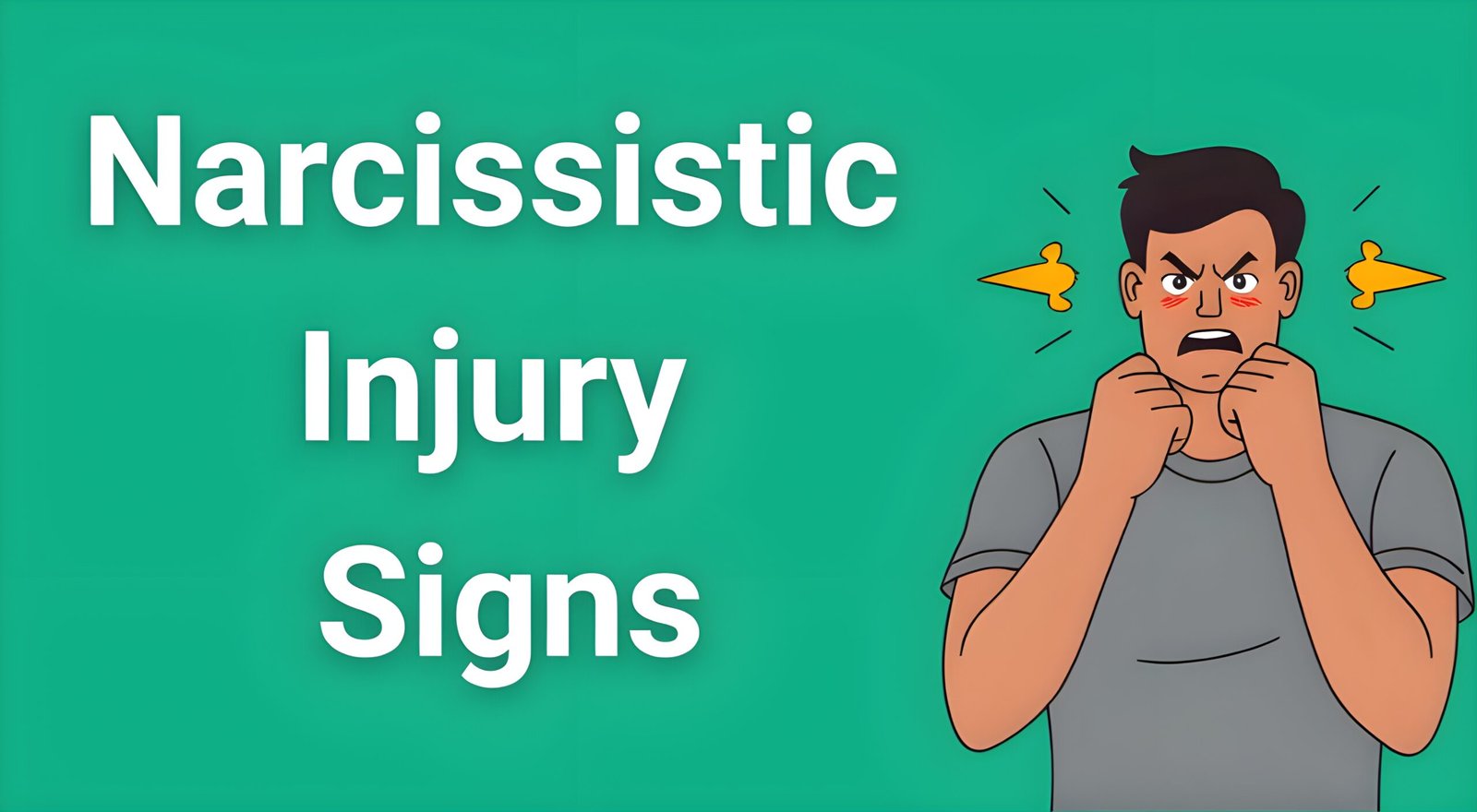You forgot to put the dish in the dishwasher exactly the way they like it. Suddenly, you’re facing a screaming meltdown that would make a toddler proud. Sound familiar? When a narcissist gets mad over little things, it leaves you questioning reality and wondering if you’re walking through an emotional minefield every single day.
- The Shocking Psychology Behind Narcissistic Rage Over Minor Issues
- Why Small Things Trigger Massive Narcissistic Reactions
- The Calculated Nature of Narcissistic Anger
- The Cycle of Narcissistic Rage Over Small Issues
- The Trauma Bond Connection
- Red Flags: When Minor Anger Becomes Major Abuse
- Protecting Yourself From Narcissistic Rage
- Breaking Free From the Cycle
- The Path to Healing
- Frequently Asked Questions
- Conclusion
The truth is, these explosive reactions to minor issues aren’t random outbursts—they’re calculated responses rooted in deep psychological dysfunction. Understanding why narcissists react with such disproportionate anger to small matters can help you stop taking their behavior personally and start protecting your mental health.
The Shocking Psychology Behind Narcissistic Rage Over Minor Issues
It’s Never Actually About the Little Thing
When your narcissistic partner explodes because you left a coffee cup on the counter or used the “wrong” tone of voice, the real issue isn’t the cup or your tone. These seemingly trivial triggers expose something much darker about how narcissists process the world around them.
Narcissists live in a constant state of threat detection. Their fragile sense of self requires absolute control over their environment to maintain their carefully constructed false image. When anything—no matter how small—happens outside their control, it threatens their entire psychological structure.
The Narcissistic Supply Connection
Every interaction is an opportunity for narcissistic supply—the attention, validation, and emotional energy they desperately crave. When a narcissist gets mad over little things, they’re actually training you to become hyper-vigilant about their needs and reactions.
This isn’t accidental. The explosive anger serves multiple purposes:
- It centers all attention on them immediately
- It establishes their emotional dominance in the relationship
- It creates trauma bonding through fear and confusion
- It trains others to anticipate and prevent their displeasure
Why Small Things Trigger Massive Narcissistic Reactions
The Perfectionist Facade
Narcissists present themselves as superior beings who deserve special treatment. When reality doesn’t match this grandiose self-image—when you don’t read their mind about how they want things done—it creates what psychologists call “narcissistic injury.”
Your failure to perfectly anticipate their unspoken expectations becomes evidence that their false self isn’t as magnificent as they believed. Rather than accepting this reality check, they explode in rage to deflect from their own inadequacy.
Control Is Their Oxygen
Understanding why a narcissist gets mad over little things requires recognizing their desperate need for control. Every minor deviation from their preferences represents a loss of control, which feels existentially threatening to someone whose entire identity depends on dominating others.
When you:
- Put dishes away differently than they prefer
- Choose a restaurant they didn’t suggest
- Express an opinion that differs from theirs
- Show independence in any small way
You’re inadvertently challenging their authority and triggering their deepest fear: that they’re not actually in control of anything.
The Shame-Rage Spiral
Behind every narcissistic rage episode lies profound shame. Narcissists develop their disorders as protection against feeling fundamentally worthless and defective. When small things don’t go their way, it unconsciously reminds them of this core shame.
Instead of experiencing the shame directly (which would be psychologically devastating), they immediately convert it to rage. Anger feels more powerful than shame, so they use explosive reactions to avoid confronting their actual feelings.
The Calculated Nature of Narcissistic Anger
It’s Not Loss of Control—It’s Strategic Control
One of the most disturbing realizations about narcissistic rage is that it’s rarely the loss of control it appears to be. Watch carefully next time your narcissist “loses it” over something minor—notice how they can instantly switch it off when:
- The doorbell rings
- Their boss calls
- Someone they want to impress arrives
This selective rage reveals the calculated nature of their explosions. When a narcissist gets mad over little things, they’re making a choice about who deserves their “uncontrolled” anger.
Training Your Nervous System
Repeated exposure to narcissistic rage over minor issues literally rewires your brain. Your nervous system learns to stay in a constant state of hypervigilance, scanning for potential triggers to avoid the next explosion.
This is exactly what the narcissist wants—a partner who’s so focused on preventing their anger that you lose yourself completely in managing their emotions. You become a full-time emotional caretaker, sacrificing your own needs to keep the peace.
The Cycle of Narcissistic Rage Over Small Issues
The Setup Phase
Before the explosion, narcissists often create situations designed to trigger your “mistakes.” They might:
- Give vague instructions then rage when you don’t follow unstated expectations
- Change rules without notice then punish you for following old rules
- Set impossible standards that guarantee your failure
The Explosion Phase
When the narcissist gets mad over little things, the rage serves multiple psychological functions. It:
- Releases their internal tension and shame
- Punishes you for threatening their control
- Reasserts their dominance in the relationship
- Creates emotional chaos that makes you easier to manipulate
The Aftermath and Gaslighting
After their disproportionate reaction, narcissists often:
- Minimize the severity of their behavior
- Blame you for “making” them angry
- Deny the explosion was unreasonable
- Act like nothing happened
This gaslighting phase is crucial for maintaining their self-image while ensuring you doubt your own perception of reality.
The Trauma Bond Connection
Why You Keep Walking on Eggshells
When someone you love regularly explodes over minor issues, your brain develops what trauma specialists call “hypervigilance.” You become obsessed with preventing the next outburst, constantly monitoring their mood and adjusting your behavior accordingly.
This isn’t love—it’s trauma bonding. The unpredictable cycle of minor triggers leading to major explosions creates the same neurochemical addiction patterns seen in other abusive relationships.
If you find yourself obsessively checking their mood, apologizing for things you didn’t do, or feeling responsible for their emotional state, you may be experiencing trauma bonding. Understanding this pattern is the first step toward breaking free.
Red Flags: When Minor Anger Becomes Major Abuse
Recognizing the Pattern
Normal people occasionally get frustrated over small issues, but narcissistic rage has distinct characteristics:
Disproportionate intensity: The anger level far exceeds what the situation warrants Blame shifting: Everything becomes your fault, even their reaction No accountability: They never truly apologize or take responsibility Calculated targeting: They save their worst behavior for people who can’t easily leave Emotional amnesia: They act like their explosive reactions never happened
The Escalation Warning Signs
When a narcissist gets mad over little things consistently, it often escalates to:
- Verbal abuse and cruel personal attacks
- Threats of abandonment or punishment
- Silent treatment and emotional withdrawal
- Financial or social retaliation
- Physical intimidation or violence
Protecting Yourself From Narcissistic Rage
Stop Taking It Personally
The hardest truth to accept is that their explosive reactions to minor issues have nothing to do with you. You could be the most perfect, accommodating person in the world, and they would still find reasons to explode.
Their anger is about their internal psychological dysfunction, not your actual behavior. Once you truly understand this, you can begin to protect your mental health instead of constantly trying to prevent their next outburst.
Document the Pattern
Start keeping a record of their explosive reactions to minor issues. Note:
- What triggered the episode
- The severity of their response
- How long it lasted
- What they said or did
- How you felt afterward
This documentation serves two purposes: it helps you see the pattern clearly and provides evidence if you need to seek help or leave the relationship.
Getting Professional Support
If you’re living with someone whose explosive anger over minor issues is affecting your mental health, professional support can be invaluable. A trauma-informed therapist can help you:
- Understand the psychological dynamics at play
- Develop healthy coping strategies
- Process the emotional damage
- Make decisions about your relationship
For those ready to take action, getting clarity about your specific situation can be life-changing. A personalized narcissistic abuse assessment can help you understand exactly what you’re dealing with and provide a roadmap for moving forward. Many people find that having an expert analyze their unique situation provides the validation and direction they desperately need.
Breaking Free From the Cycle
Understanding Trauma Bonds
One of the reasons it’s so hard to leave someone who regularly explodes over minor issues is the trauma bond that develops. Your brain becomes literally addicted to the cycle of tension, explosion, and relief.
Breaking this addiction requires more than willpower—it requires understanding the neuroscience behind trauma bonding and following a structured recovery process. The 30 Day Trauma Bond Recovery Workbook provides a science-based system for rewiring your brain and reclaiming your freedom.
When You Can’t Leave Yet
Sometimes leaving isn’t immediately possible due to financial constraints, children, or other circumstances. If you’re stuck living with someone whose rage over minor issues is destroying your peace of mind, you need survival strategies that work.
Learning how to protect your mental health while planning your exit requires specific skills and techniques designed for these complex situations. Resources like “How to Survive When You Can’t Leave Yet” provide practical strategies for maintaining your sanity in impossible circumstances.
The Path to Healing
Recovery Is Possible
Living under the constant threat of explosive anger over minor issues creates complex trauma that affects every aspect of your life. But recovery is absolutely possible with the right understanding and support.
The first step is always education—understanding that their behavior isn’t normal, isn’t your fault, and isn’t something you can fix by being more perfect. The second step is building a support system of people who understand narcissistic abuse.
Rebuilding Your Reality
After months or years of walking on eggshells around someone’s disproportionate anger, you may have lost touch with what normal relationships look like. Healthy people don’t explode over minor issues. They communicate their preferences calmly and handle disappointments without emotional abuse.
Remembering this truth and rebuilding your sense of reality takes time, but it’s essential for creating a life free from the constant fear of triggering someone’s rage.
Frequently Asked Questions
Q: Why do narcissists always seem to get mad at me but not other people?
A: Narcissists save their worst behavior for people they believe won’t leave—those they’ve successfully trauma bonded or who depend on them. They maintain a charming facade for outsiders while unleashing their rage on safe targets.
Q: Can a narcissist change if I explain how their anger affects me?
A: No. Their explosive reactions to minor issues are not due to misunderstanding—they’re calculated responses to maintain control. Explaining your pain often just gives them more ammunition for future manipulation.
Q: Is it normal to feel like I’m walking on eggshells constantly?
A: No, this is not normal in healthy relationships. Constant fear of triggering someone’s disproportionate anger is a sign of emotional abuse and typically indicates trauma bonding.
Q: How do I stop feeling responsible for their emotional reactions?
A: Recovery requires understanding that you cannot control another person’s emotions, no matter how perfectly you behave. Their explosive anger is their choice and their responsibility, not yours.
Q: What if they say they’ll change after exploding over something small?
A: Actions matter more than words. If someone truly wanted to change their explosive reactions to minor issues, they would seek professional help and demonstrate consistent behavior change over time, not just apologize after each incident.
Conclusion
When a narcissist gets mad over little things, they’re revealing the depth of their psychological dysfunction and their desperate need to control every aspect of their environment. These explosive reactions aren’t about the dishes, your tone of voice, or any other minor trigger—they’re about maintaining dominance through fear and confusion.
Understanding this pattern is the first step toward protecting your mental health and reclaiming your life. You deserve relationships built on respect and genuine care, not walking on eggshells around someone’s unpredictable rage.
Your healing journey begins with one simple truth: their behavior is not normal, not acceptable, and not your fault. The explosive anger that seems to come from nowhere is actually a calculated response designed to keep you trapped in their psychological web.
But now you know the truth behind their rage—and knowledge is the first step toward freedom.






